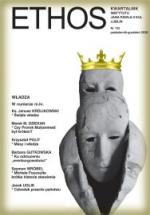 zobacz powiększenie | DOI 10.12887/33-2020-4-132-10 Furio Pesci, Power and Authority: Between Foucault and Girard Cena brutto: 7,00 PLN za szt. |
|
Contemporary deconstructionism, which today is not only among the strongest currents in the culture of our time, but also an inspiring source of the political debate regarding the so-called civil rights, proposes a negative vision of the whole tradition to which the Catholic social doctrine refers. Foucault’s work is a useful tool to unmask the ideological character of the ‘deconstructivist’ attitude, as well as potential dangers related to the policies based on it. In particular, Foucault’s theories allow us to analyze the ‘liberal’ tendencies widespread in the West as an example of a new kind of ‘biopolitics,’ which maintains the aims and practices typical of the ‘biopower’ described by the French thinker. René Girard proposes an analysis of certain intellectual currents in contemporary culture, in particular deconstructionism. According to Girard, modernity is characterized by breaking classical schemes, which rigorously structured human desire according to the Logos so as to prevent conflicts among the particular desires. In modernity, which brought the individualistic affirmation of the ego, Logos (in the sense of effective rationalization of desire) gradually disappeared replaced by an ever stronger individual freedom conceived as an end in itself. Contact: Dipartimento di Psicologia dei Processi di Sviluppo e Socializzazione, Sapienza Università di Roma, Villa Mirafiori, Via Carlo Fea 2, 00161 Rome, Italy | |
